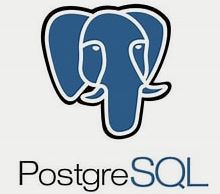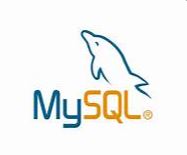PostgreSQL and MySQL are well-known relational database systems (RDBMS), and both are open-source RDBMS. This article offers a complete comparison to help developers, DBAs, and businesses choose the right tool for their needs.
Table of Contents
Introduction to PostgreSQL vs MySQL
PostgreSQL and MySQL are robust database management systems in countless web, enterprise, and cloud-based applications. While both support SQL standards, they differ in features, performance, extensibility, and use cases.
PostgreSQL is known for its advanced features and compliance. It follows full ACID properties, supports JSONB, and custom data types.
MySQL is valued for its speed, ease of use, and broad adoption in LAMP stacks.
🕰️ A Glimpse into History: PostgreSQL vs MySQL
PostgreSQL was developed at the University of California, Berkeley, in 1986 & its initial name was POSTGRES. In 1996, they renamed it as PostgreSQL. It was designed as an object-relational DBMS to succeed the Ingres system. It has grown into a robust, open-source enterprise-grade database system.

The Swedish company MySQL AB developed MySQL in 1995. Sun Microsystems acquired MySQL AB in 2008, followed by Oracle in 2010. MySQL became popular and adopted by multiple organizations for web development. It provides good speed and is also very easy to use. Concerns over Oracle’s ownership led to the creation of forks like MariaDB. MySQL remains a dominant open-source RDBMS, especially in LAMP stacks.

Advantages and Disadvantages of PostgreSQL vs MySQL
When choosing an open-source relational database management system (RDBMS), PostgreSQL and MySQL are two of the most widely used options. Both have strengths and weaknesses. Which is suitable for the organization depends on your specific application needs, technical requirements, and project goals. This article explores all the key advantages and disadvantages of PostgreSQL vs. MySQL, highlighting a few critical and essential differences that will help us make the correct decision.
PostgreSQL: Advantages
A few advantages of PostgreSQL are given below for more clarity:
✅ Advanced SQL Compliance
PostgreSQL adheres to ANSI SQL standards and supports complex queries, common table expressions (CTEs), and full outer joins.
✅ Support for Advanced Data Types
It offers native support for JSON, XML, hstore, UUID, arrays, and custom composite types—ideal for modern applications.
✅ Extensibility
PostgreSQL is highly extensible. You can define your functions, operators, and data types.
✅ MVCC (Multi-Version Concurrency Control)
Efficient concurrency is ensured with MVCC, allowing readers and writers to work simultaneously without locks.
✅ Geospatial Data Support
PostgreSQL excels in GIS (Geographic Information Systems) functionality with the PostGIS extension.
✅ Custom Indexing Techniques
Another advantage of PostgreSQL is its support of BRIN, GIN, GiST, and SP-GiST indexes, which helps during performance optimization.
✅ Write-Ahead Logging (WAL)
PostgreSQL provides facilities like data integrity (DI) and crash recovery (CR) through robust transaction logging.
✅ Table Partitioning
Offers native and declarative table partitioning for large datasets.
✅ Foreign Data Wrappers (FDW)
Integrate and query external databases or files directly using FDWs.
✅ Better for Analytical Workloads
PostgreSQL is ideal for OLAP use cases, large-scale reporting, and data warehousing due to its rich analytical features.
✅ Open Community Development
There is no corporate control; an open-source community with transparent governance manages PostgreSQL.
PostgreSQL: Disadvantages
A few disadvantages of PostgreSQL are given below for more clarity:
❌ Steeper Learning Curve
The advanced feature set can be overwhelming for beginners or small teams.
❌ Less Common in Shared Hosting
In shared web hosting environments, MySQL is popular & also the default choice.
❌ Performance Overhead in Simple Reads
For basic read-heavy applications, PostgreSQL may be slower than MySQL.
❌ Limited Tooling for Beginners
While robust, the ecosystem lacks the abundance of beginner-friendly GUI tools MySQL offers.
❌ Complex Configuration
In PostgreSQL, tuning requires a clear & more profound understanding of its internal architecture.
❌ Lower Popularity in WordPress
WordPress and many PHP-based CMSs are designed primarily for MySQL.
❌ Smaller User Base in Legacy Systems
Many legacy apps and enterprise tools are explicitly built for MySQL.
❌ Migration Complexity
Migrating from MySQL to PostgreSQL can be non-trivial due to differences in syntax and behavior.
❌ Resource Intensive
It may consume more system resources than MySQL for small-scale applications.
❌ Replication Setup is Less Intuitive
Though powerful, replication in PostgreSQL can be harder to configure and manage.
MySQL: Advantages
A few advantages of MySQL are given below for more clarity:
✅ High Speed for Read-Heavy Workloads
It is optimized for fast reads and is ideal for web applications and content-heavy websites.
✅ User-Friendly Tools
Multiple tools, such as phpMyAdmin and MySQL Workbench, are available in the market. These are widely utilized by multiple organizations and are beginner-friendly.
✅ Widespread Hosting Support
It is readily available on shared hosting platforms, especially for LAMP stack setups.
✅ Excellent Documentation
Rich, well-maintained documentation and tutorials are available for all skill levels.
✅ Community and Commercial Editions
Offers flexibility between free and enterprise-grade versions.
✅ Replication Simplicity
In MySQL, the configuration of master-slave replication is more simple & straightforward than PostgreSQL.
✅ Default Engine (InnoDB) Supports Transactions
The Default Engine (InnoDB) supports full ACID properties, foreign keys (FK), and crash recovery (CR) features.
✅ Popular in Web Development
Most PHP frameworks, CMSs, and eCommerce platforms (WordPress, Magento, and Joomla) are MySQL-centric.
✅ Cross-Platform Compatibility
It runs smoothly on various platforms, including Windows, Linux, and macOS.
✅ Low Resource Usage
Suitable for smaller applications with limited hardware.
✅ Strong Ecosystem
Many plugins, GUI tools, and third-party integrations are available.
MySQL: Disadvantages
A few disadvantages of MySQL are given below for more clarity:
❌ Limited SQL Compliance
Lacks full support for advanced SQL features like window functions and common table expressions (until version 8.0).
❌ Fewer Data Types
Limited support for complex types like arrays, stores, and full JSON operations.
❌ Poorer Write Performance Under Load
Can experience bottlenecks with high-volume writes.
❌ Lacks MVCC in MyISAM Engine
MyISAM doesn’t support MVCC, which affects data integrity and concurrency.
❌ Closed Features in Enterprise Edition
Some advanced features are only available in the commercial version under Oracle.
❌ Less Suitable for Complex Analytics
Lacks native support for many OLAP operations out-of-the-box.
❌ Limited Full-Text Search
Full-text indexing is fundamental compared to PostgreSQL’s capabilities with extensions like vector.
❌ Indexing Limitations
PostgreSQL’s custom index types are more flexible than MySQL indexing.
❌ Rigid Triggers and Stored Procedures
Less powerful procedural language support for writing custom triggers and functions.
❌ Data Integrity Issues in MyISAM
MyISAM does not support foreign keys, risking referential integrity problems.
❌ Corporate Control by Oracle
The open-source community is concerned about Oracle Corporation’s influence on licensing decisions and future directions.
9 Major Differences Between PostgreSQL vs MySQL
| Features | PostgreSQL | MySQL |
| ACID Compliance | Full Support | It depends on engine (InnoDB) |
| JSON Support | It supports – Advanced (JSONB) | Supports Basic features |
| Replication | Synchronous & Asynchronous | Primarily Asynchronous |
| Data Types | Rich & customizable | Supports Basic features |
| Performance (Read-heavy) | Slightly slower | Faster Than PostgreSQL |
| Performance (Write-heavy) | It Provides a better concurrency. | Decent but limited. |
| Extensibility | Highly extensible. | Limited. |
| Community | Strong academic & enterprise focus. | Huge user base. |
| Licensing | PostgreSQL License (Open) | GPL (with Oracle’s control) |
Selection Criteria : PostgreSQL vs MySQL
For better clarity, a few points have been given, which will help during tool selection..
PostGreSQL:
🔹 For complex data models, analytics, and extensibility, PostgreSQL is ideal.
🔹 Because it supports complex data types like store, arrays, JSONB, UUID, and custom types.
🔹 It provides rich Indexing options, such as GiST, full-text indexes, GIN, BRIN, and SP-GiST, which are essential for enhancing the performance of complex queries.
🔹 PostgreSQL provides a strong Ecosystem and Tools like pgAdmin, DBeaver, and psql to help administrators & developers.
🔹 PostgreSQL is fully ACID-compliant, ensuring reliable transactions.
🔹 Supports advanced SQL features like Common Table Expressions (CTEs), window functions, recursive queries, and subselects.
🔹 Native support for statistical, mathematical, and pattern-matching functions Can be used with analytical tools like Apache Superset, Tableau, and Python (via psycopg2 or SQLAlchemy).
MySQL:
🔸 MySQL is renowned for its user-friendly setup and straightforward configuration, making it an ideal choice for beginners and rapid development.
🔸 Optimized for read-heavy operations, MySQL delivers high-speed query execution in simple CRUD applications.
🔸 Almost every shared hosting provider, especially in popular stacks like LAMP (Linux, Apache, MySQL, PHP), supports MySQL by default.
🔸 Good part of MySQL is that it has massive global user base and a long-standing community for future supports.
🔸 MySQL is a popular & widely used RDBMS and is supported by CMS platforms like Drupal, Joomla, eCommerce, and WordPress tools like Magento and WooCommerce.
🔸 Tools like phpMyAdmin, MySQL Workbench, and GUI-based installers simplify database creation and management.
🔸 It requires fewer system resources than PostgreSQL, making it suitable for low-cost or resource-constrained environments.
Best Practices for PostgreSQL vs MySQL
🔹 MySQL: Opt for an InnoDB storage engine, enable query caching, and monitor slow queries.
🔹 Use ORM tools that support both to keep flexibility.
🔹 Perform load testing before choosing one for production.
Most Important Things to Know: PostgreSQL vs MySQL
🔹 PostgreSQL supports full MVCC (multi-version concurrency control).
🔹 MySQL’s performance depends heavily on correct indexing and engine choice.
🔹 MySQL is often preferred in shared hosting environments due to its lightweight nature.
Example: PostgreSQL vs MySQL Syntax
PostgreSQL
SELECT name FROM employees WHERE data->>'age' > '30';MySQL
SELECT name FROM employees WHERE JSON_EXTRACT(data, '$.age') > 30;9 Common Issues with PostgreSQL vs MySQL:
🔹 If the Query Performance is slow
PostgreSQL: In PostgreSQL, we may observe a slightly slower response to complex queries due to missing indexes or inefficient joins.
Solution: Use EXPLAIN ANALYZE to understand the query plan, add appropriate indexes, and optimize joins.
MySQL: Inefficient indexing or outdated statistics may slow down queries.
Solution: Use EXPLAIN, add missing indexes, and run ANALYZE TABLE to refresh statistics.
🔹 Connection Limit Exceeded
PostgreSQL: The default connection limit may not handle high concurrency.
Solution: Use a connection pooler like pgBouncer, and increase max_connections in PostgreSQL.conf.
MySQL: Too many client connections can overload the server.
Solution: Increase max_connections in my.cnf and use persistent connections or pooling in the application.
🔹 Replication Lag
PostgreSQL: Replication may fall behind in write-heavy environments.
Solution: In this case, try to configure WAL settings properly (wal_buffers, wal_writer_delay), and ensure adequate network bandwidth.
MySQL: Enslaved people may lag due to single-threaded replication.
Solution: Use multi-threaded replication (slave_parallel_workers), optimize write queries, and monitor Seconds_Behind_Master.
🔹 Deadlocks
PostgreSQL: Complex transactions may cause deadlocks.
Solution: Keep transactions short, access tables consistently, and monitor logs for deadlock patterns.
MySQL: Deadlocks can occur with InnoDB under high concurrency.
Solution: Use consistent row access patterns and enable innodb_deadlock_detect.
🔹 Data Corruption or Inconsistency
PostgreSQL: Unexpected shutdowns may corrupt WAL or indexes.
Solution: Enable fsync, set up automated backups, and run REINDEX when needed.
MySQL: Table corruption, especially in MyISAM.
Solution: Use InnoDB, run CHECK TABLE, and back up regularly using mysqldump or mysqlpump.
🔹 Poor JSON Performance
PostgreSQL: JSONB queries may be slow without indexing.
Solution: Use GIN indexes on JSONB columns for faster lookups.
MySQL: JSON lacks native indexing.
Solution: Use generated (virtual) columns and index them for efficient filtering.
🔹 Large Database Size
PostgreSQL: Bloat from MVCC and dead tuples increases size.
Solution: For the large database, it would be better if we run VACUUM, VACUUM FULL, or pg_repack regularly to clean up dead rows.
MySQL: Unused indexes and data fragments inflate size.
Solution: Drop unused indexes and run OPTIMIZE TABLE.
🔹 Slow Startup Time
PostgreSQL: Too many extensions or large shared buffers can slow startup.
Solution: Disable unused extensions and tune memory settings.
MySQL: Large InnoDB buffer pool or slow I/O causes startup delay.
Solution: Tune innodb_buffer_pool_size and ensure disk I/O performance is optimized.
🔹 Inadequate Security Settings
PostgreSQL: The Default pg_hba.conf may allow unwanted access.
Solution: Always use complex and strong password authentication, restrict IPs, and enable SSL connections.
MySQL: Weak default root password or open ports.
Solution: Set strong passwords, restrict remote root access, and configure firewalls or bind addresses.
Conclusion: PostgreSQL vs MySQL
Ultimately, your application requirements, team experience, and deployment environment will determine which PostgreSQL and MySQL are best for you. PostgreSQL is a strong option if you require sophisticated features, great data integrity, and sophisticated queries. On the other hand, MySQL often proves more convenient for lightweight applications, fast read operations, and ease of use.
Top 50 Interview Questions on PostgreSQL vs MySQL
Q: What is PostgreSQL?
Ans: Open-source object-relational database system.
Q: What is MySQL?
Ans: Open-source relational database system, often used in LAMP stack.
Q: Which supports JSON better?
Ans: PostgreSQL (via JSONB).
Q: Is MySQL ACID compliant?
Ans: Only with the InnoDB storage engine.
Q: Does PostgreSQL support full-text search?
Ans: Yes, natively and efficiently.
Q: Which is faster for read-heavy tasks?
Ans: MySQL.
Q: Which database has MVCC?
Ans: PostgreSQL.
Q: Which one allows custom data types?
Ans: PostgreSQL.
Q: How does replication differ?
Ans: PostgreSQL offers synchronous; MySQL uses asynchronous by default.
Q: Which is more manageable for beginners?
Ans: MySQL.
Q: Can PostgreSQL handle big data?
Ans: Yes, with proper tuning.
Q: Which supports GIS features?
Ans: PostgreSQL with PostGIS.
Q: Is MySQL suitable for analytics?
Ans: Not ideal; PostgreSQL is better.
Q: Which has better concurrency?
Ans: PostgreSQL with MVCC.
Q: What’s the default storage engine in MySQL?
Ans: InnoDB.
Q: How is JSON stored in MySQL?
Ans: As text (limited indexing).
Q: Can PostgreSQL scale vertically?
Ans: Yes, efficiently.
Q: How is error handling in PostgreSQL?
Ans: Detailed and structured.
Q: Does MySQL support foreign keys?
Ans: Yes, with InnoDB.
Q: Can PostgreSQL be extended with custom functions?
Ans: Yes, using languages like PL/pgSQL, Python, etc.
Q: Which one is better for data warehousing?
Ans: PostgreSQL.
Q: Is MySQL good for WordPress?
Ans: Yes, it’s the default.
Q: PostgreSQL is often used by _________?
Ans: Enterprises and analytics teams.
Q: MySQL is often used by ___________?
Ans: Web developers and hosting providers.
Q: Can PostgreSQL support parallel queries?
Ans: Yes.
Q: Is MySQL good for OLTP?
Ans: Yes.
Q: What is pgAdmin?
Ans: PostgreSQL’s GUI management tool.
Q: What is MySQL Workbench?
Ans: GUI tool for MySQL.
Q: Which is more mature in terms of SQL compliance?
Ans: PostgreSQL.
Q: Can I run both on Docker?
Ans: Yes.
Q: Does MySQL support views?
Ans: Yes.
Q: Does PostgreSQL have materialized views?
Ans: Yes.
Q: Can we use triggers in MySQL?
Ans: Yes, but limited.
Q: Does PostgreSQL support CTEs?
Ans: Yes, including recursive.
Q: Is replication easy in MySQL?
Ans: Yes, using simple configurations.
Q: Which is more secure?
Ans: PostgreSQL offers more control.
Q: Is PostgreSQL more resource-intensive?
Ans: Slightly.
Q: Which is more flexible with licensing?
Ans: PostgreSQL (PostgreSQL license).
Q: Can MySQL handle time-series data?
Ans: With limitations.
Q: Can PostgreSQL use arrays as data types?
Ans: Yes.
Q: Which offers better indexing options?
Ans: PostgreSQL.
Q: Which is more popular in enterprise apps?
Ans: PostgreSQL.
Q: Which is better for mobile apps’ backend?
Ans: MySQL (for quick setup).
Q: Which integrates well with Python?
Ans: Both PostgreSQL and psycopg2 are common.
Q: Is sharding supported in PostgreSQL?
Ans: Yes, via extensions.
Q: Which supports partitioning better?
Ans: PostgreSQL.
Q: Which is cloud-native?
Ans: Both PostgreSQL is preferred in AWS RDS.
Q: Which handles schema changes better?
Ans: PostgreSQL.
Q: Can we store unstructured data?
Ans: Yes, via JSON/JSONB.
Q: Final recommendation?
Ans: Use PostgreSQL for complex systems and MySQL for simpler ones.
Review the articles below, also.
Understand Deadlocks in SQL Server
Unleash Database Insights with Extended Events in SQL Server
Dynamic Data Masking in SQL Server
A Powerful SQL Server Developer Edition
SQL Server Configuration Manager
SQL Managed Instance: Faster & Improved
TSQL Database Backup: Top 7 Usage
Dbcc Freeproccache: A powerful command
Extended Events in SQL Server: A Deep Dive
Understand Deadlocks in SQL Server

